
You can get thousands of clicks to your site from Google News.
And, you don’t even have to be a journalist.
Smart bloggers, news publishers, and digital content marketers are already tapping into this huge resource for targeted traffic and better search engine visibility.
Google News is reserved for sites and blogs that publish timely, topical articles. You don’t necessarily need to be a news site but if you are consistently posting newsworthy content it’s possible to get accepted.
Danny Sullivan once said: If you aren’t a news site, Google News and its web crawlers won’t likely show you love.
But that isn’t a guarantee.
What is News?
A major search engine like Google defines news as “newly received or noteworthy information, especially about recent or important events.”
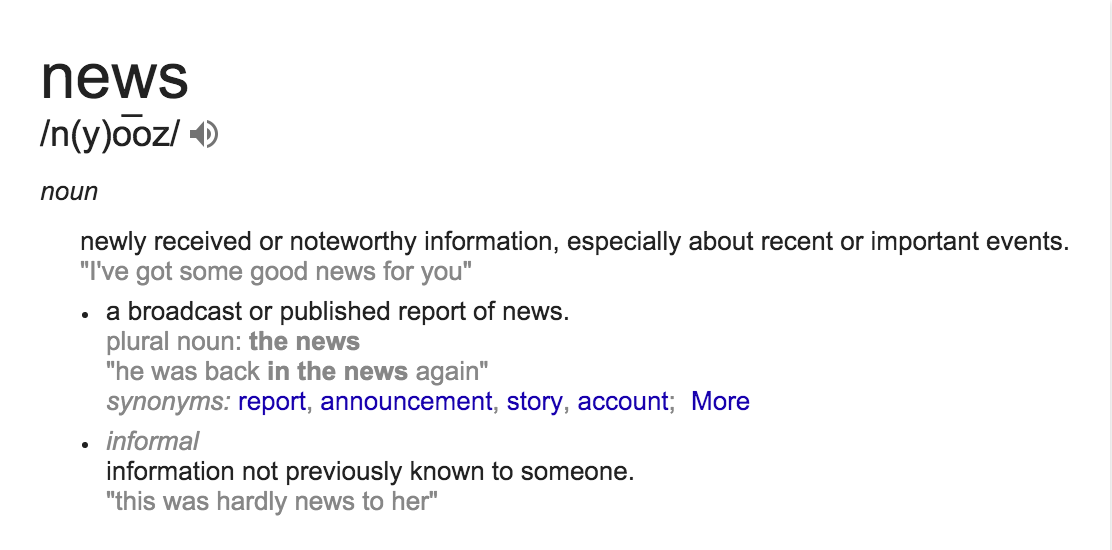
If you’re at the forefront of your industry and reporting information that’d be of interest to your audience on a timely basis, then you’re a news publisher.
Google News is a content syndication platform that Google introduced to help organize the world’s news in many ways and to make it more accessible to its users, like a news XML.
Google News sends 6 billion clicks per month to publishers all over the world. Even if you get just 0.0001% of these clicks to your web site, that’s huge. Do the math.

That said, it’s a challenge in many ways to get your website indexed as a news publisher by the Google News sitemap file crawler and your articles indexed and ranked in Google News.
Let’s look at some of the best practices for getting added to Google News XML sitemap and how you can get real-time traffic.
Adhere to the Principles of Good Journalism
If you look at recent additions to the Google News sitemap syndication platform, you’ll notice that Google, for the first time, is no longer 100% focused on news-related “current events”- type content. You can tell that just from looking at the meta tags.
It’s evolved over the years as a news sitemap, leveling the playing field for bloggers, content creators, and news publishing experts. This evolution may not be obvious from the search term headlines but the content reveals this expansion.

However, the principles of good journalism haven’t been discarded by this major search engine. Google still cares about the style and substance of articles, especially as part of its XML. Good journalism is all about being honest and as objective as possible.
Why do you think the Google XML sitemap crawls, indexes, and publishes third party website content from CNN, BBC, Techcrunch, The Wall Street Journal and others in its search results?
One of the reasons is because these sites are true news publishers and adhere to strict standard journalism practices. They’re transparent and they adhere to the same professional standard. Just take a look at their search history and you can see they take their news seriously.

To be included in news XML’s your reporting must be original, honest, and well-structured with quality anchor texts, meta tags, and an authoritative voice.
Standard journalism is all about investigation and not just about search engine optimization. So, you should be able and ready to investigate a story and authenticate it, before reporting it.
For your story to strike a chord with editors, who will in turn syndicate it at Google News, PBS recommends that you present information from the most to the least important content points.
There’s an established application process to get your stories featured on the XML sitemap of Google News. But, before you apply, follow these guidelines:
1. Don’t copy from other sites. Write original news articles.
First and foremost, you need to make sure that your stories are original.
A major search engine like Google doesn’t want to syndicate the same piece of content verbatim and it’s search algorithm will pull you up. You’ve got to make your story original with accurate data points from credible sources. Wherever you got your information from, whether it’s trawling through search history, sitemap files, or exploring web pages – make sure your sources are trustworthy.
Take a look at the Google News homepage. All of the featured stories are original content with credible sources. And, no site is ranked more than once for its stories.
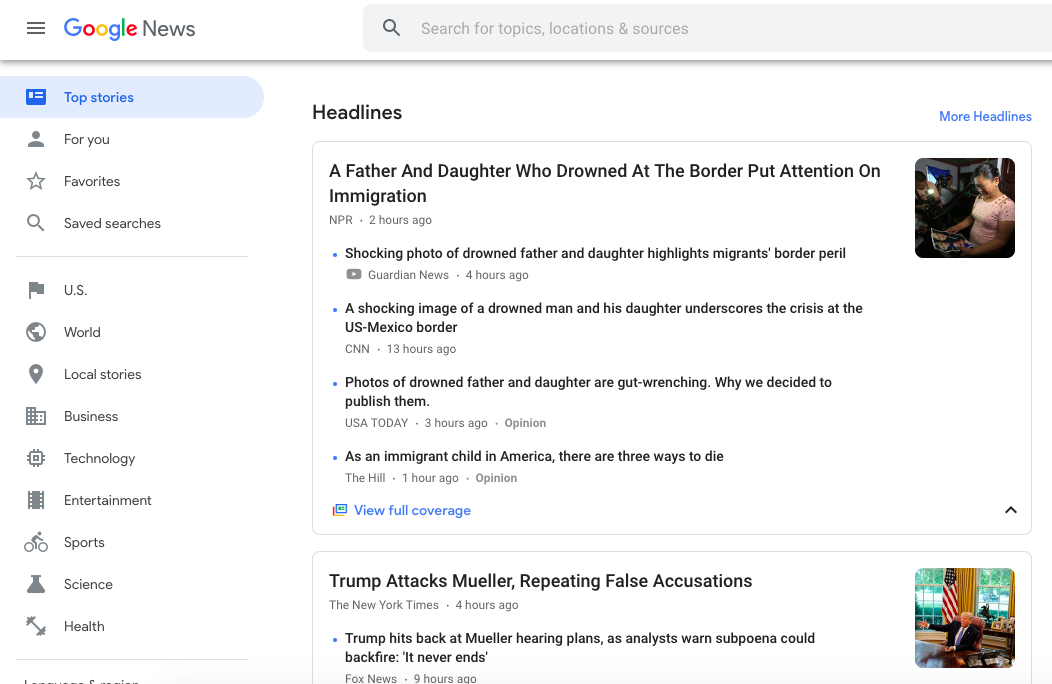
Google is a credible company, a major search engine that is trusted by millions all around the world. Imagine Google reporting a story that’s false, it would be a metasearch engine disaster!
What do you think would happen to its credibility?
And, speaking of credibility, Google is equally concerned with Author Rank.
There’s no better way to become a reputable author than to write for other news and magazine sites. If you’ve never written for trusted news web sites, such as Forbes, Inc. or Business Insider, you need to begin.
Google knows that reputable authors and columnists don’t copy news stories from other sources which is why they get included in their XML sitemaps.
Instead, they go all out to get an original story. Famous authors who publish original stories over a period of time are given credit so that they can build “rank” and improve their reputation, no matter what online publication they choose to write for.

One way to get your story added to Google News quickly is to use a co-author who has a high Author Rank.
In Google’s view and when looking for inclusions on their news XML sitemap file, such an author brings a higher level of authority to your site and the resulting story is more likely to be original and credible.
To get started reporting news, you need original stories. The resource guide below will give you more guidance:
2. Write keyword-rich headlines that communicate the story topics.
Your headline makes a promise to the reader. If you get it right, your news story will likely be picked up by Google and other journalists who can amplify the content’s reach.
According to Poynter, you should “try to keep your headlines straightforward and unadorned. Use concise and familiar words, if possible.”
You may be tempted to use numbers in your news story headlines. After all, users love numbers. But, if you’re going to use a “listicle” headline type, it should provide specific insights and steer clear of “linkbait” territory. There is no way that linkbait and lousy anchor texts are going to get you placed on Googles news XML sitemap file.
I’ve noticed that authority sites that report stories daily rarely use the listicle format or “numbered” headlines.
They simply write an accurate, clear and compelling headline. Let’s take a cue from Search Engine Land.
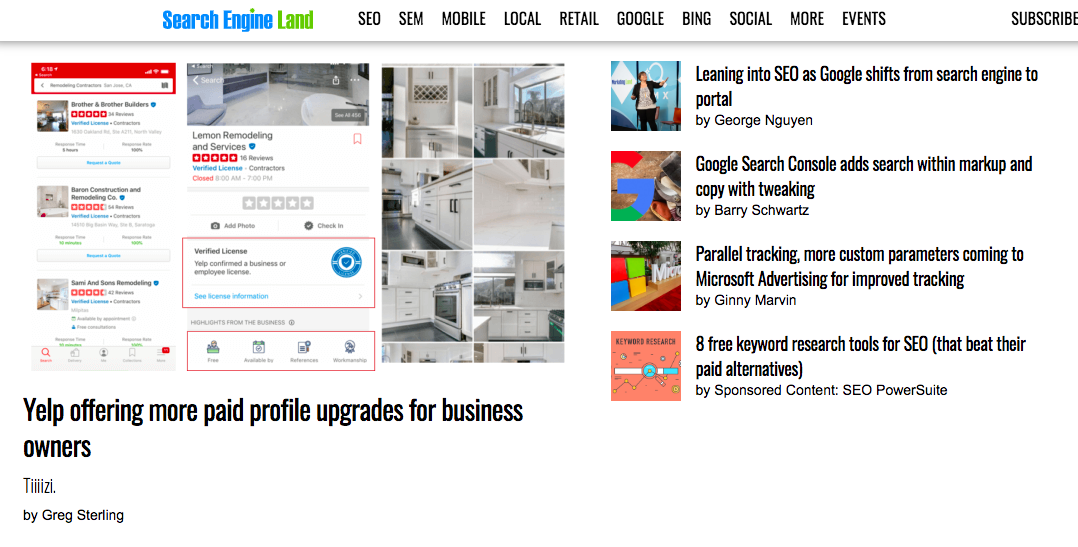
Just like blog posts, your news story headline determines whether your story will be syndicated by Google or not.
Here are some tips to help you write newsworthy headlines that are sure to appear in the search results and remember the same approach can be taken with your meta tags:
i). Don’t repeat words: The purpose of getting your website or story added to Google News XML sitemap is to get clicks and views from the huge user base. You don’t have to repeat words or keywords in the headline, as though you’re actively doing search engine optimization.
Here’s a weak news headline:
“How experienced investors can mentor about-to-quit investors”
Avoid this repetition of words like the plague.
ii). Use active voice: A news headline is a quick way to demonstrate what’s inside the story and will catch the eye of the search engine.
Don’t bore users or discourage journalists from picking your story. Avoid using a passive voice.
In the passive voice, the subject is receiving the verb. For example:
- Passive voice: Mary was hit by a car.
- Active voice: The car hit Mary.
An active voice starts with the subject. With an active voice, you can say more with fewer words from the very first time. Brevity is an essential news publisher tactic that captivates the audience.

Using active voice in your news headline also helps to trim down unnecessary words. If you check Digg’s homepage, you’ll see that most of the syndicated stories have headlines written with an active voice.
Here’s an example:

The passive-voice version of the above news headline is obviously weaker:
- An Episode of ‘Top Chef’ Was Produced with Help From the CIA
iii). Write in the present tense: This is another important point to keep in mind when writing a story headline with the hope of getting it syndicated on the Google News XML sitemap file.
Even if the story itself or content is written in the past tense, the headline should indicate what’s happening right now. After all, that’s why it’s called “news”, and that’s what the XML sitemap is looking for.

Several stories on the Google News homepage are written in the present tense. Take a look:
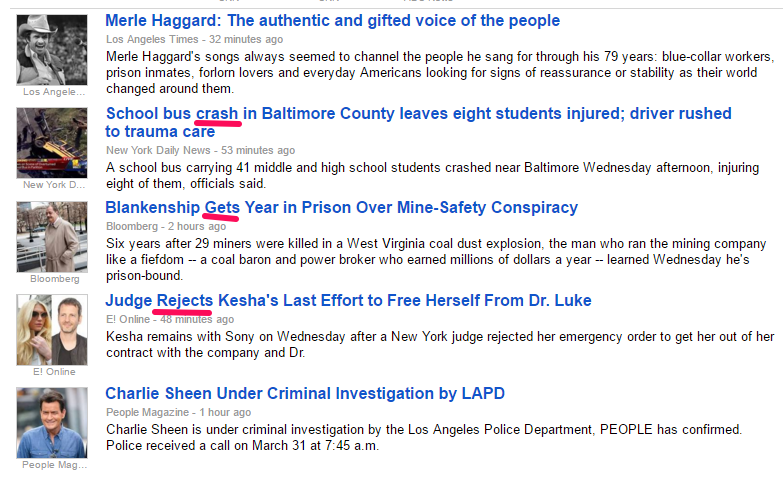
iv). Know which words to capitalize: Have you noticed that not all words in a news story headline are capitalized? As a rule of thumb, capitalize the first word of the headline. You must also capitalize proper nouns.
On the Google News homepage, both title case and first word/proper noun capitalization standards are used.
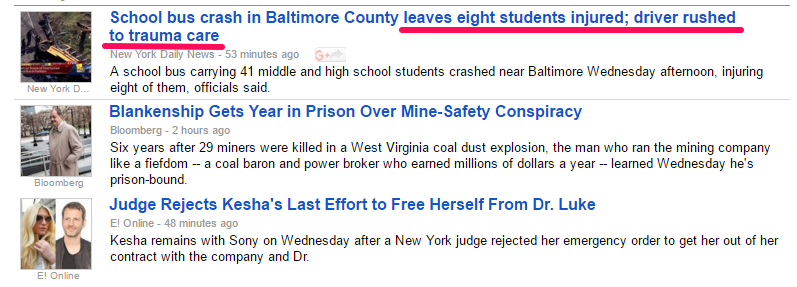
If you use title case, don’t capitalize articles. So, for example, “Judge Rejects Kesha’s Last Effort to Free Herself From Dr. Luke” is correct, but if “to” were capitalized as well, that would be incorrect.
3. Write news-related articles, not evergreen content.
In adding sites to Google News, remember that a major search engine like Google can only include sites that follow their Webmasters Tool Guidelines.
If there’s nothing timely about your topic or story, it’s not news. It’s as simple as that. In journalism, “timing is everything.” Timely content makes it to the top, others get lost in the pages of the search history.

For your site to be accepted, you’ve got to write news-related articles consistently. Evergreen content just won’t work with Google News.
Aside from that, the major search engine Google also has specific types of content that they accept. In Google’s words:
“We generally do not include how-to articles, advice columns, job postings or strictly informational content such as weather forecasts and stock data.”
In the world of blogging, creating evergreen content is your guarantee for sustainable organic traffic. And Google rewards such content in its organic results.
But, that kind of content isn’t news, so a search engine like Google won’t syndicate it.
When you look at the Google News homepage, you’ll notice that the stories are timely – mostly as the events unfold:
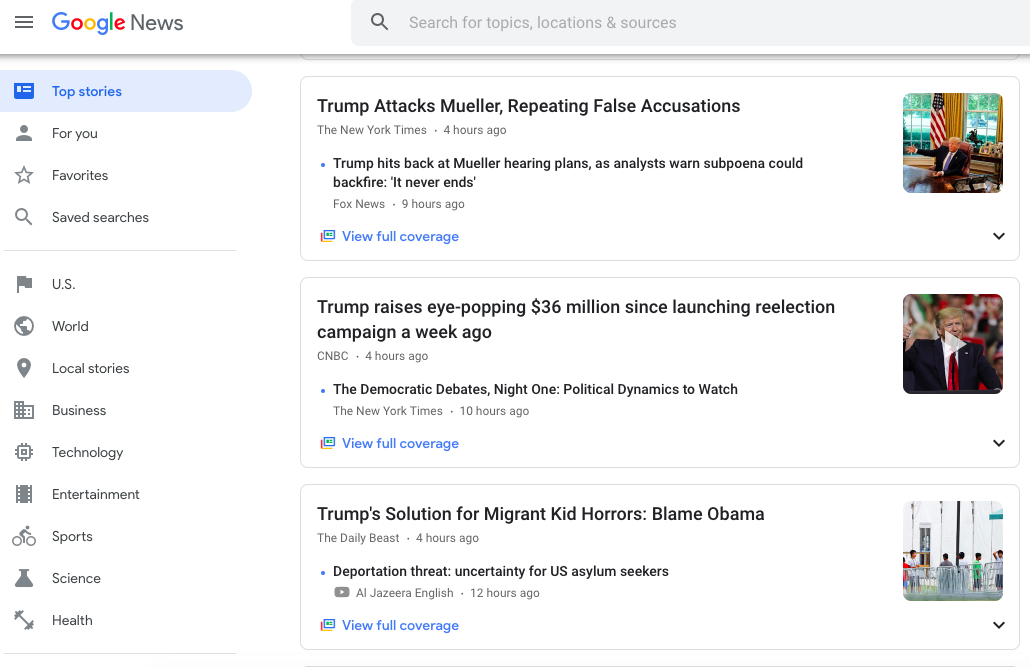
4. Write at least 2 news articles each day.
Are you the only one managing your site? If you want to get added to Google News, you may need to make a change.
The majority of the news media sites that are syndicated on Google News are multi-authored. In other words, more than one person writes for the site.
Think about CNN, BBC, Bloomberg, New York Times, Huffington Post, and so forth.
These sites are updated every minute of the day, by a crop of prolific writers who are transparent and accurate in their reporting, it’s why they are so popular in the search engines.

You need more writers who can source for fresh stories, write about them and submit them within hours.
You may find you have to train good writers. You could start by hiring freelance writers, then train them on the journalistic approach that Google News and other media platforms and search engines require for every story.
You should also work to teach your writers how to follow your brand guidelines, especially if they are writing for you for the first time. Let them know the elements that should be present in a news story – the headline, the appropriate voice, the requirement for sources and the rules of citation.
Ideally, create an author page on your site, where you introduce each writer on your team.
Google will ask you for a list of authors who report stories on your site. In fact, you’ll be required to submit contact details for each author, when you apply.
5. Establish authority with your blog.
Google is understandably strict about the content it considers to be news. Not every article is news-related.
Most of the time, it’s not about the story, but the context or angle by which the author covered it, this is why lamestream media can be so popular.
Since Google is passionate about timely, up-to-date stories, you need a way to prove to Google that you’ve adhered to its guidelines.
You need to establish authority with your blog. Authority, on the web, boils down to how many user-friendly sites and web pages link back to yours. Webmasters tool can help you check where you stand.

Let’s say that your 3-month old blog has been reporting timely, up-to-date stories as they unfold.
Another site (say, Mashable) has more authority than your blog and established search history.
Now answer this question:
If your blog reported the same trending story as Mashable, and both news stories followed the news-writing standard, which of the stories do you think that Google would crawl first, index, and offer a high pagerank?
Did I hear Mashable?
You’re 100% correct.
The reason why is obvious: Mashable has more authority in the search engines than your 3-month old blog.
Mashable publishes more timely content because it’s got the budget for a sufficient number of authors. If you’re a small business, you can’t beat that.
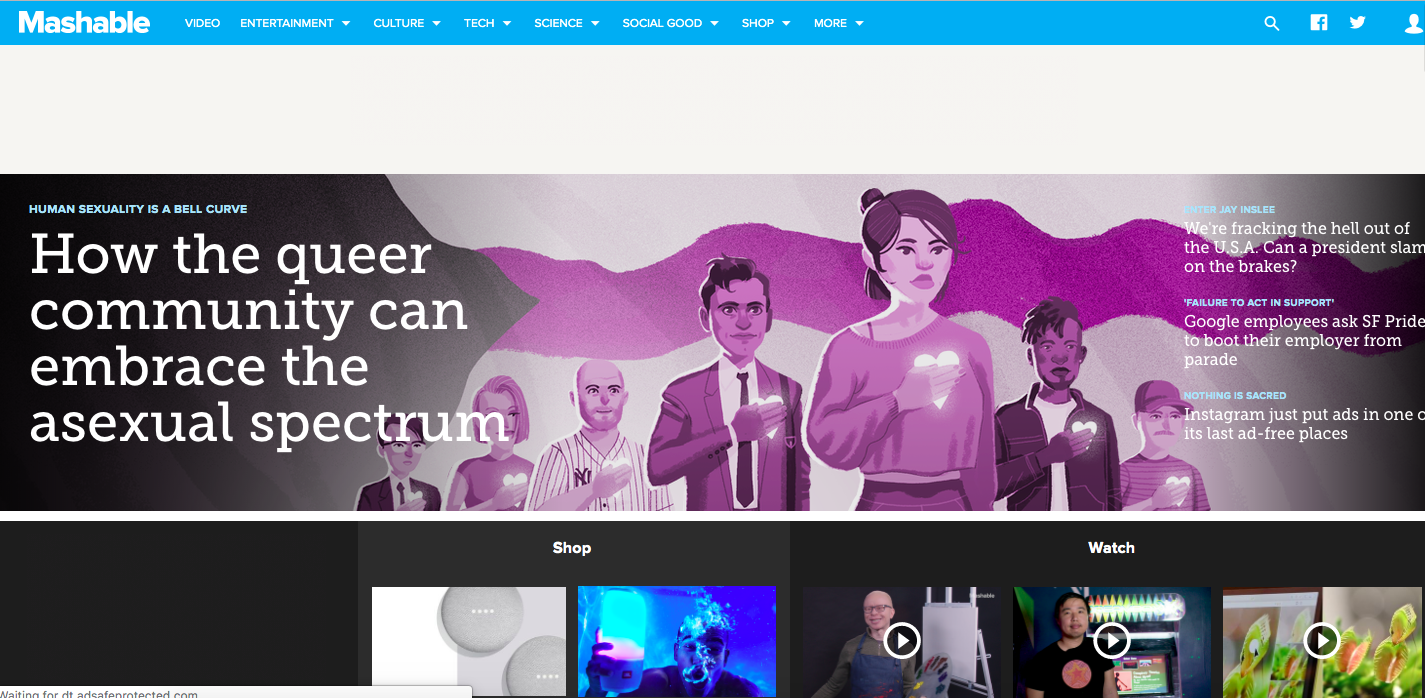
Building authority with your blog isn’t a straightforward thing. And, it definitely will not happen overnight.
You need to get off of your site. You should be everywhere.
While you’re building your Author Rank, by contributing to other trustworthy sites, always reference your story in a natural way. Ideally, use your branded keyword or story headline as anchor text to link back to your site.
The more authority sites you contribute to and get links from, the more authority your blog will get and the more you will show up in the search results and the search history. Your blog will build momentum gradually. Be patient!
Social media is equally vital, so spread the love. Get active on social media platforms like Facebook, LinkedIn, Instagram, and Twitter.
Don’t try to copy or mimic another author’s writing style. Find your own voice. Stick to it. That’s the only way to stand out from the crowd and get your news-related articles added to Google News.
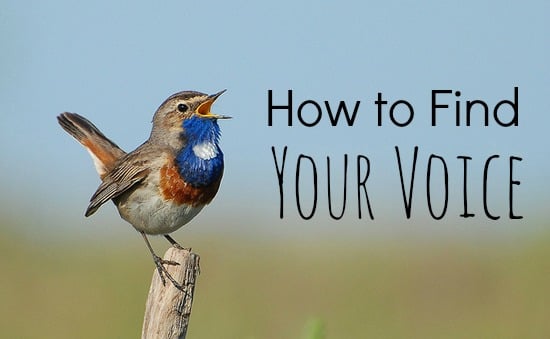
When your content is unique and compelling, more people will click your headline, visit your site and take action.
But, when your news is like everyone else’s, you’re not making an impact. To the audience, there’s nothing in it for them. Consequently, they’ll leave.
Conclusion
Now that you’ve seen the possibility of getting your website and news articles added to Google News, it’s time to take action and apply.
Don’t be too quick to do this. You first need to create a path, on your blog, that a Google News bot or spider can follow to crawl your fresh stories as they’re published.
Google suggests that you add a Google News Sitemap to make this easier. If your blog is hosted on WordPress CMS, you can find Google News sitemap plugins in the WordPress repository.
Once you’ve installed one of the plugins, you can apply to Google News here. This will connect with your Google Console account, thus making it easier to add several of your sites to Google News. Be sure to use the webmaster tool to check your indexing status.
Does your site meet the Google News requirements? If yes, why aren’t you tapping into Google News for real-time traffic?
from Blog – Neil Patel https://ift.tt/3e3tDxb

No comments:
Post a Comment